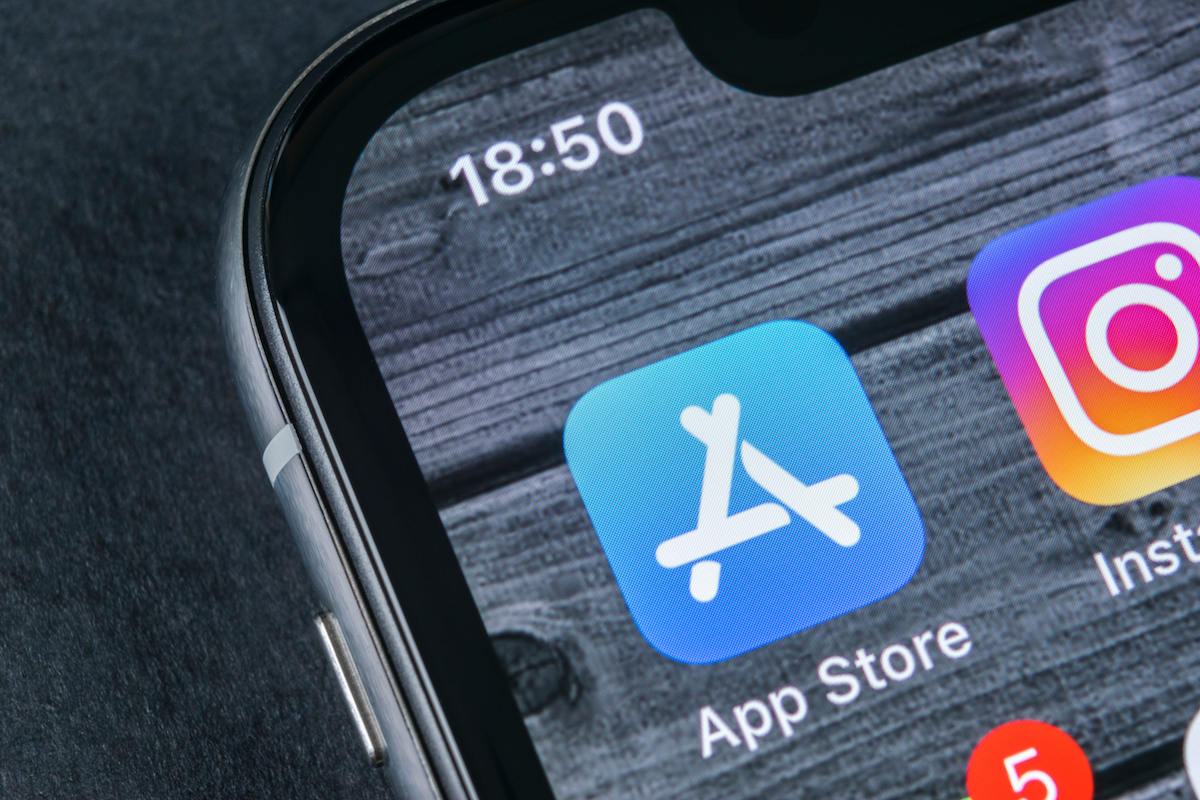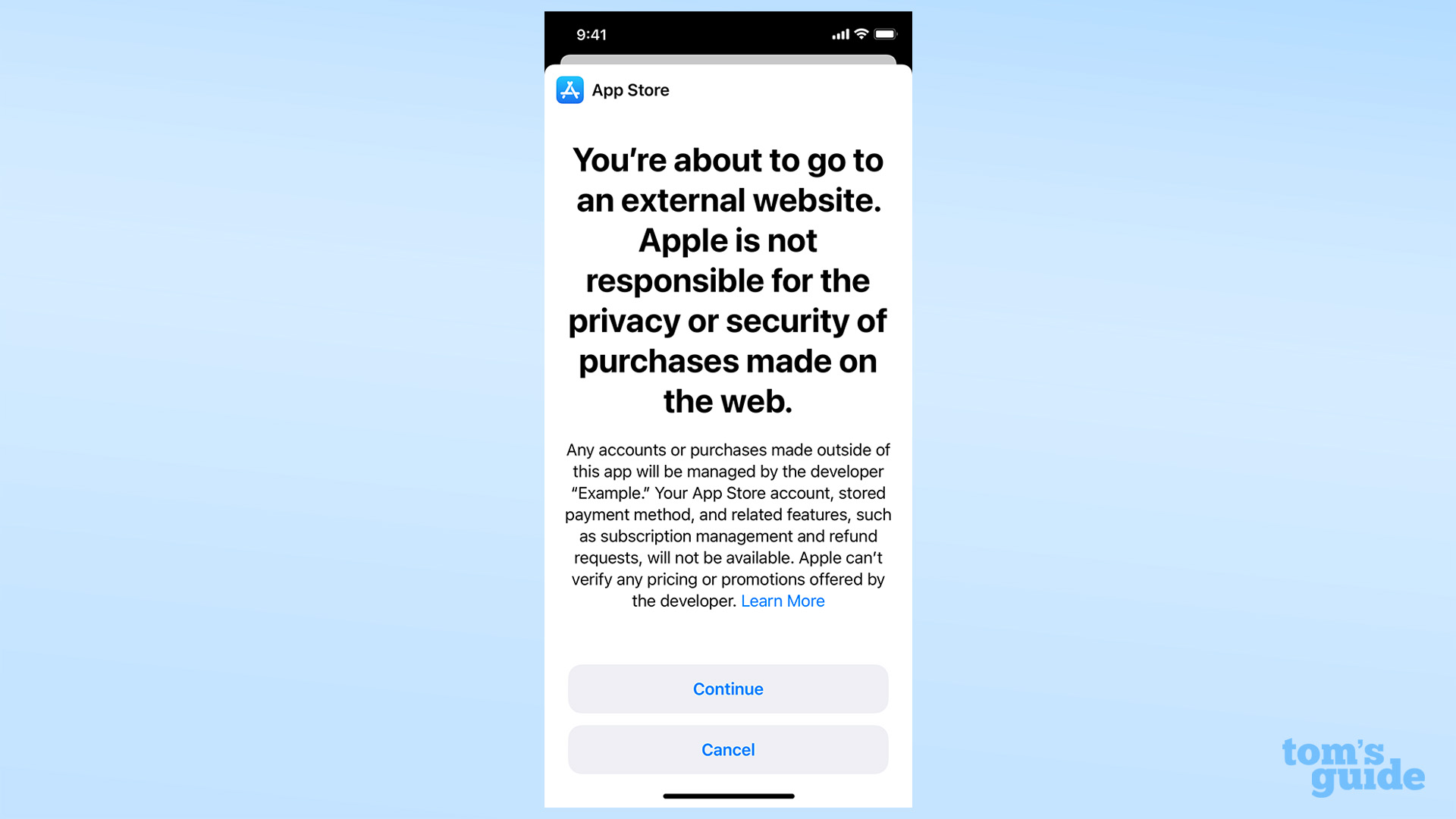Apple vs. Epic Games is over for now — here’s how the App Store is changing as a result
Apple vs. Epic Games is over for now — here's how the App Store's changing as a result

Apple vs. Epic Games has officially come to an end, as the U.S. Supreme Court declared it won't hear either company's appeal, leaving existing judgments from lower courts standing (via Reuters).
The two companies have been in a legal battle since 2020 over whether Apple was allowed to block developers from processing app payments outside of the App Store. When Epic tried to do this with Fortnite payments, Apple blocked the app from the App Store, leading to Epic retaliating with a lawsuit.
Epic's legal team was unable to get accusations of antitrust behavior to stick to Apple when fighting its case in the lower courts. However, the District Court did find that Apple was engaging in anti-steering practices: illegally blocking developers from informing their users of alternative payment methods. An injunction was made in 2021 to force Apple to correct this, but its remedies were put on hold while Apple's appeal was being processed.
The app store's already changing
With legal proceedings brought to an end (for now), Apple now has to abide by that injunction, something you can already see reflected in the App Store Guidelines if you know where to look.
In a new section of the App Store Review Guidelines, labeled "Link to Other Purchase Methods," and a new StoreKit page on distributing apps with external purchase links Apple details how apps can and can't use external payments. These changes are limited only to the iPhone and iPad App Store, and only in the U.S.
Apps have to apply for special permission to use their own payment links, which they have to manage themselves, but can only do so if the app offers in-App Store payments too. Developers are also permitted to communicate about these payment options outside of the app themselves, including if they're cheaper than the in-app purchases.
Apple's quite specific on how the links need to behave, and what sort of language developers can use to advertise external purchases. Apps will also be forced to show an "In-app system disclosure sheet," a big warning screen which spells out in no uncertain terms that users are leaving the Apple ecosystem for this payment.
Get instant access to breaking news, the hottest reviews, great deals and helpful tips.

Once an external payment's been made, Apple will get a cut of 27% normally, or 12% for developers that are part of the App Store Small Business Program, which seems intended to stop developers from undercutting their in-App Store prices too much. Developers have to keep records of external purchases themselves in order to satisfy Apple's guidelines, and submit them to Apple if requested.
Even if you do live in the United States where these new rules apply, you’re unlikely to notice these changes immediately, unless you’re a developer yourself. But considering Apple’s not making it easy or appealing for users to pay for things outside of its ecosystem, it’s hard to say how many apps will actually take advantage of the new payment option, and how quickly they'll adopt them.
Equally, it's possible that these guidelines won't be in place in their current state for long. Epic Games founder and CEO Tim Sweeney has already declared Epic will challenge these guidelines for following the injunction in bad faith. Looks like we may not be done with Apple and Epic's legal wranglings just yet.
More from Tom's Guide
- I'm not buying an Apple Vision Pro — but here's how Apple could change my mind
- Apple Car patent shows new approach to safety
- Google Maps just got a big Bluetooth upgrade — why that's good for you

Richard is based in London, covering news, reviews and how-tos for phones, tablets, gaming, and whatever else people need advice on. Following on from his MA in Magazine Journalism at the University of Sheffield, he's also written for WIRED U.K., The Register and Creative Bloq. When not at work, he's likely thinking about how to brew the perfect cup of specialty coffee.
 Club Benefits
Club Benefits





